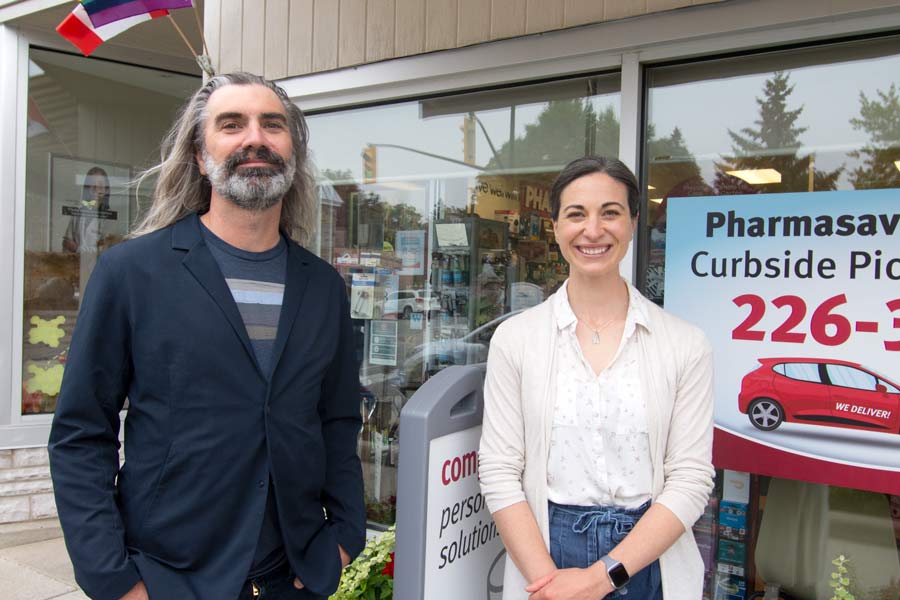ELORA – A Guelph company has figured out a way to assess the risk of COVID-19 transmission within a building and Elora Apothecary is among its first clients.
ParticleOne, founded by the Guelph-based environmental engineering firm RWDI, was spawned from RWDI’s own challenges in understanding the different risk level in each of its 26 offices around the world.
The company partnered with Steven Newmaster, a genomics scientist at the University of Guelph, to develop the platform, which is now more widely available.
In an interview, Mike Williams, a building performance engineer with ParticleOne, said broad-brush restrictions like masking, social distancing, and limiting occupancy are effective, but there’s value in knowing if there are extra risks because of the way a building is configured, its age, and the way it is used.
“We’ve developed a platform to quantify the potential for COVID transmission within a space,” Williams said, noting outdoor air fraction, HEPA filters and ultraviolet germicidal radiation are other tools that may reduce risk.
“There are a lot of tools, but which do you deploy? We run a calculation and provide best practices.”
At Elora Apothecary, ParticleOne recommended a HEPA filtration system in addition to masking, physical distancing, and limiting occupancy.
Pharmacist and co-owner Bronwyn Tolmie said there’s peace of mind knowing she’s doing all she can to make the store as safe as it can be for customers and staff.
“We’re a setting that can’t close,” Tolmie said. “So quantifying what we’re doing to limit transmission is really helpful. This has helped us to really understand the layers of protection.”
Tolmie and her husband Andrew Tolmie also own the Pharmasave Trailside Pharmacy. It’s a new building with more space and better air flow and HVAC systems, so it doesn’t need the same remediation as the historic building where Elora Apothecary is located.
Williams said clients in the oil and gas industry are really interested to know the best way they can operate to keep staff well and on the job.
“Some of the extraction sites in northern Alberta are like little cities,” Williams said. “Every space has unique challenges.”
Most of ParticleOne’s clients are large industries but Williams said he sees benefits for municipalities, which have so many different kinds of facilities, and school boards, where transmission risk would likely vary greatly from one school to the next.
“I would love to see a bespoke approach in schools,” he said. “We would love the opportunity to work with public health as well.”
Williams said the assessment generally includes three “buckets” of information – information about community transmission, vaccination rates and transmission rates; occupant dynamics; and the way the building performs.
“We take those variables, run risk simulations, quantify the risk and provide advice and guidance,” he said.
“We see this as part of the new normal. Hopefully we reach a point with COVID when infections drop. Or maybe it will be something we have to watch and monitor for a long time. But it’s only a matter of time before the next thing comes along.
“The uplifting part is that we’ve learned we can get out of this with a better understanding of our spaces.”



